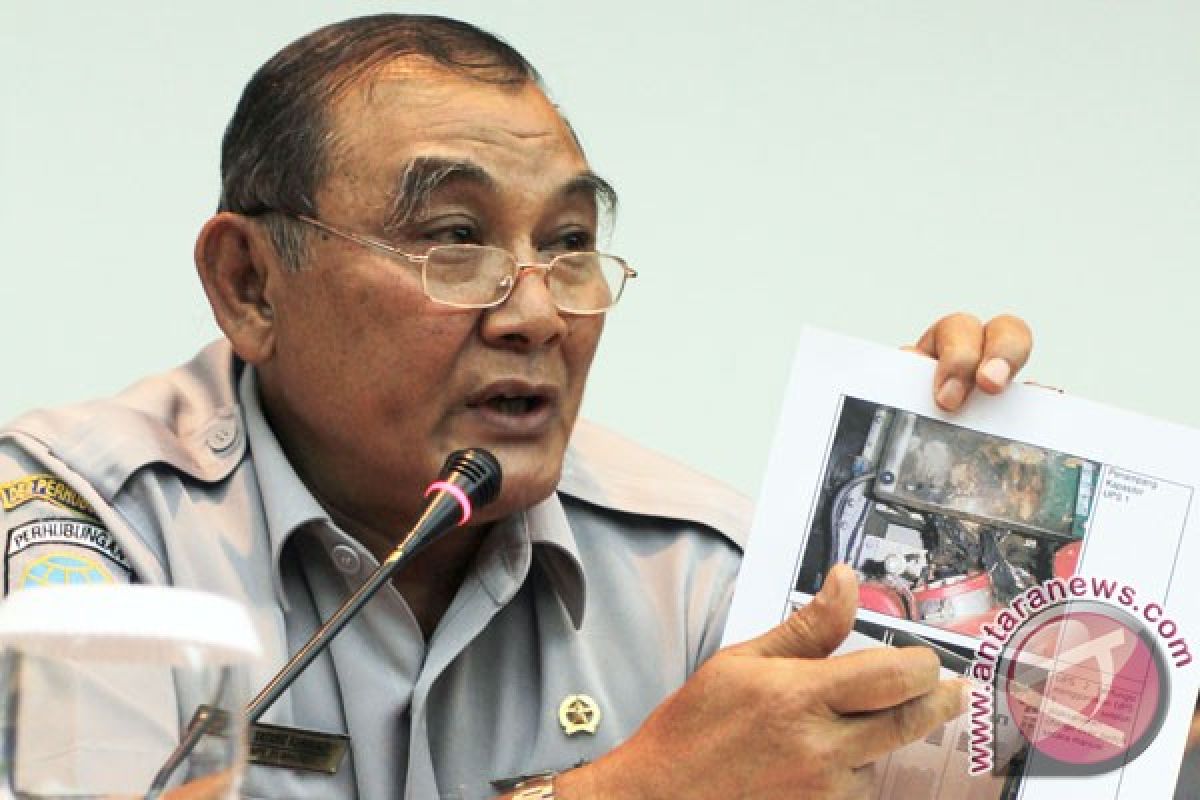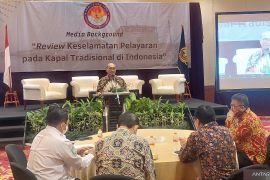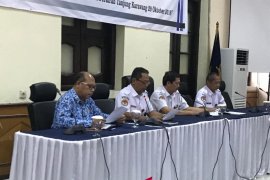"I need a total of 267 investigators."Jakarta (ANTARA News) - The Indonesian National Transportation Safety Committee (KNKT) needs a total of 267 investigators to cover cases of transportation across the country, said KNKT chief Tatang Kurniadi.
"I need a total of 267 investigators to be assigned throughout Indonesia," the KNKT Chairman told a press conference here on Friday.
He said that the number of KNKT official investigators now still could be counted on fingers while there still a lot of cases that needed to be investigated based on schedules.
Tatang said that a Japanese expert once predicted that Indonesia needed some 1,000 investigators to investigate transportation and other serious accidents in Indonesia.
Japan whose area is smaller than that of Indonesia has about 400 investigators, he said.
On its budget, Tatang said that the KNKT budget had increased to Rp6 billion since it started operation in 2007 to Rp33 billion in 2012.
He said that KNKT had investigated as many as 256 cases related to traffic accidents from 2007 to 2012.
"From 2007 to 2012, KNKT has investigated 256 traffic accidents," Tatang Kurniadi said.
He said out of these 256 cases, 41 cases are related to accidents on highways, 44 cases are related to railway accidents, 31 cases are accidents at sea, and 140 cases are air crashes.
According to Kurniadi, the rate of accidents (RoA) has declined over the last six years, indicative of higher traffic safety levels.
Earlier, KNKT had stated that due to a sudden power failure, many flight schedules at the Soekarno-Hatta Airport had been disrupted on December 16.
Indonesia`s main gateway, the Soekarno-Hatta International Airport in Tangerang, Banten, had experienced a brief power outage, disrupting flights to and from the airport.
"According to the investigations carried out by Indonesian authorities, several components of the Uninterruptible Power Supply (UPS) had caught fire," said Kurniadi, during a press conference on December 24.
More than 50 flights had been either delayed or rerouted, creating congestion at the airport.
More than 30 flights (Garuda Indonesia) had been delayed and more than 50 Lion Air flights had been severely affected.
The incident shows that the country faces many problems with regard to air traffic control (ATC) management. These problems have not been resolved.
Despite an increase in the number of passengers, the Soekarno-Hatta Airport uses a 26-year old system - the Jakarta Automated Air Traffic Service (JAATS), to track around 2,000 aircrafts on a daily basis, four times higher than the system`s capacity.
Although the JAATS was upgraded in 1996, the system seems to be overloaded because of the increasing number of flights.
According to several aviation experts, when the JAATS system fails, airplanes are forced to continue flying around the airport for up to 45 minutes until the ATC gives them clearance to land.
When the JAATS system fails, accidents can happen because not all commercial aircrafts have the right equipment to avoid a collision.
The airport is not able to accommodate an increasing number of passengers.
The Soekarno-Hatta Airport is the 16th busiest airport in the world, based on the number of passengers arriving and departing from the airport. It was able to accommodate 50 million passengers in 2011, more than its annual capacity of 22 million passengers.***3***
(A014/A/b003/B003)
(T.A014/A/KR-BSR/B003) 28-12-2012 20:29:27
Editor: Priyambodo RH
Copyright © ANTARA 2012












